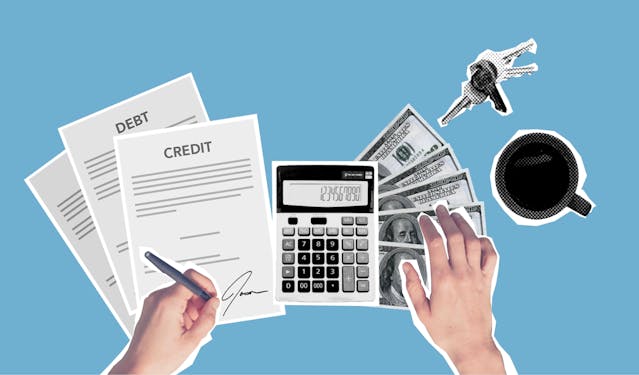Retirement is a major milestone in life, and it’s never too early to start planning for it. In fact, the earlier you start planning, the better off you’ll be in the long run. But when exactly should you start planning for retirement? In this article, we’ll discuss the importance of retirement planning and when you should start.
Why is Retirement Planning Important?
Retirement planning is the process of setting financial goals and creating a plan to achieve them during your retirement years. It involves determining how much money you will need to live comfortably after you stop working and creating a strategy to save and invest that money.
Retirement planning is crucial for several reasons:
Maintaining Your Standard of Living
Retirement planning ensures that you have enough money to maintain your current standard of living after you retire. Without proper planning, you may find yourself struggling to make ends meet or having to drastically change your lifestyle.
Inflation and Rising Healthcare Costs
Inflation and rising healthcare costs can significantly impact your retirement savings. By planning ahead, you can factor in these potential expenses and make sure you have enough money to cover them.

Longer Life Expectancy
With advancements in healthcare and technology, people are living longer than ever before. This means that your retirement savings will need to last longer as well. Proper planning can help ensure that you have enough money to support yourself for the duration of your retirement.
Peace of Mind
Retirement planning can provide peace of mind, knowing that you have a solid financial plan in place for your future. This can alleviate stress and allow you to enjoy your retirement years without worrying about money.
When Should You Start Planning for Retirement?
The short answer is: as soon as possible. The earlier you start planning for retirement, the more time you have to save and invest, and the more your money can grow.

In Your 20s
While retirement may seem like a distant concept in your 20s, it’s actually the perfect time to start planning. This is when you have the most time to save and invest, and even small contributions can make a significant impact over time.
Equip thy minds with the wisdom of coin and commerce With our recommended Financial Literacy for Young Adults. Venture forth to the Amazon marketplace, where the scrolls of financial literacy await thee! Join the quest for prosperity and enlightenment, and may thy coffers overflow with the treasures of knowledge.

In Your 30s
In your 30s, you may have more financial responsibilities, such as a mortgage, children, and other expenses. However, it’s still important to prioritize retirement planning. This is when you should start thinking about how much money you will need in retirement and creating a plan to achieve that goal.
Check out our Top rated Budget planner pick from amazon or check out our Top Tablet Budget planner pick from amazon.
In Your 40s
By your 40s, you should have a solid understanding of your retirement goals and how much money you will need to achieve them. This is a good time to reassess your retirement plan and make any necessary adjustments.
In Your 50s
In your 50s, retirement is likely on the horizon, and it’s important to make sure you have enough money saved to support yourself. This is when you should start thinking about when you want to retire and how you will fund your retirement years.

In Your 60s
By your 60s, retirement is just around the corner, and it’s crucial to have a solid plan in place. This is when you should start thinking about how you will withdraw and manage your retirement savings and make any final adjustments to your plan.
Retirement Planning Specialists
Retirement planning can be a complex and overwhelming process, which is why many people turn to retirement planning specialists for help. These professionals have the knowledge and expertise to help you create a comprehensive retirement plan that meets your unique needs and goals.
Retirement planning specialists can help you:
- Determine how much money you will need in retirement
- Create a savings and investment plan to achieve your retirement goals
- Manage your retirement savings and make adjustments as needed
- Plan for potential healthcare costs and other expenses in retirement
- Create a plan for withdrawing and managing your retirement savings during retirement
Retirement-Planning Technology
Technology has made retirement planning more accessible and efficient than ever before. There are now various tools and resources available to help you plan for retirement, including:
Retirement Planning Calculators
Retirement planning calculators are online tools that can help you estimate how much money you will need in retirement and how much you should be saving each month to reach that goal. These calculators take into account factors such as your current age, income, and retirement goals to provide a personalized estimate.
Retirement Planning Apps
Retirement planning apps are another useful tool for managing your retirement savings. These apps allow you to track your retirement accounts, monitor your investments, and make adjustments to your plan as needed.
Retirement Planning Spreadsheets
Retirement planning spreadsheets are a simple yet effective way to track your retirement savings and investments. These spreadsheets can help you visualize your progress and make adjustments to your plan as needed.
Check out our Top rated Budget planner pick from amazon or check out our Top Tablet Budget planner pick from amazon.
Real-World Retirement Planning Strategies and Examples
One example of a successful retirement planning strategy is the 50/30/20 rule. This rule suggests that you allocate 50% of your income to essential expenses, 30% to discretionary spending, and 20% to savings and investments. By following this rule, you can ensure that you are saving enough for retirement while still enjoying your current lifestyle.
Another example is the “bucket” approach, where you divide your retirement savings into different “buckets” based on when you will need the money. For example, you may have a “bucket” for short-term expenses, such as healthcare costs, and another for long-term expenses, such as travel and leisure.
Takeaways
Retirement planning is a crucial aspect of financial planning and should be started as early as possible. By planning ahead and utilizing the resources and tools available, you can ensure that you have enough money to support yourself during your retirement years. Whether you choose to work with a retirement planning specialist or use technology to manage your savings, the key is to start planning now to secure a comfortable and stress-free retirement.





























